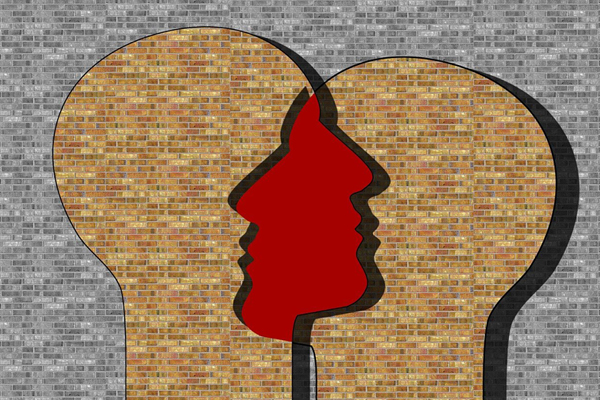Dissociative Identity Disorder (DID), previously known as Multiple Personality Disorder, is a complex mental health condition characterized by the presence of two or more distinct identities or personality states within an individual. These identities may have their own unique ways of thinking, behaving, and relating to the world.
The exact cause of Dissociative Identity Disorder is not fully understood, but it is believed to develop as a result of severe trauma, often experienced during childhood. The dissociation is thought to be a coping mechanism that allows individuals to detach from overwhelming experiences and emotions.

These refer to abnormal experiences or behaviours that are not typically present in healthy individuals. They include hallucinations (perceiving things that aren't there), delusions (false beliefs), disorganized thinking and speech, and abnormal motor behaviour.
Individuals with DID may experience memory gaps or amnesia for significant periods of time, events, or personal information. They may be unable to recall important aspects of their lives or have difficulty remembering day-to-day events.
Feelings of detachment from oneself (depersonalization) or from the surrounding environment (derealization) can be present. It may feel as if one is observing oneself from outside the body or as if the world is unreal or distorted.
Individuals with DID often experience a range of emotional and behavioural difficulties, including depression, anxiety, mood swings, impulsivity, self-harm, substance abuse, and suicidal thoughts or attempts.
The primary treatment for DID is long-term psychotherapy, often involving a specialized approach called dissociative disorder treatment. This may include techniques such as Trauma-Focused Behavioural Therapy, Dance Movement Therapy, Eye Movement Desensitization and Reprocessing (EMDR), or Dialectical Behaviour Therapy (DBT). The goal is to help individuals integrate their identities, process traumatic memories, improve coping skills, and establish healthy functioning.
While there are no specific medications for treating DID itself, certain medications may be prescribed to address associated symptoms such as depression, anxiety, or mood instability.
In severe cases where safety is a concern or when individuals are at risk of self-harm or suicide, hospitalization may be necessary to provide a safe environment and intensive support.
Individuals with DID can benefit from support groups, peer support, and case management services to enhance their overall well-being and help them manage daily challenges.
Individuals with DID can benefit from support groups, peer support, and case management services to enhance their overall well-being and help them manage daily challenges